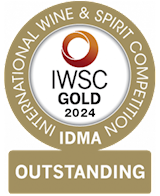Best Bosnian and Herzegovinian Beverage Types
Dunjevača (rakija od dunje) is a clear and colorless spirit distilled from ripe fermented quinces. This fruit brandy—known as rakija—is one of the most popular spirits in the Balkans and is usually of excellent quality. Dunjevača is a potent spirit (40% ABV) that has a pleasant quince aroma.
Most examples are colorless, but some producers opt for oak-aging, which typically imparts golden color and woody notes. Dunjevača is served neat, preferably well chilled. It is mainly enjoyed as an aperitif.
Although they are quite similar, Bosnian coffee is best described as a variety of Turkish coffee. Bosnian version is prepared with roasted coffee beans that are finely ground, sometimes using the old-fashioned device reminiscent of a large mortar and pestle.
There are several ways how to prepare it, but the most common involves pouring boiled water in a traditional long-handled cezve (džezva), heating it, and then adding ground coffee. The combination is then mixed and heated until a thick foam rises on top.
Rakija is a universal term used for various fruit brandies produced in several Balkan countries (Southeast Europe). This strong spirit is distilled from different fruit and is sometimes additionally flavored or used as a liqueur base. The most common versions are made from plums (šljivovica), Williams pear (viljamovka), quinces (dunjevača), apricots (kajsijevača), apples (jabukovača), grapes (lozovača/komovica), and many more.
Rakija has present in the region for centuries. It is mainly associated with Croatia, Serbia, Bosnia, Montenegro, and North Macedonia. Although fruit brandies are produced in other European countries and regions, in the Balkans, rakija is a household name and has a large following among all generations.
VARIATIONS OF Rakija
Žilavka is the best-known white grape variety from Herzegovina. It is a light-skinned grape that produces wines with high alcohol content and bright acidity. Although it is not exclusive to the region, Žilavka is strongly associated with Herzegovina, and it is believed to be a native Herzegovinian grape.
In the past, Žilavka was primarily used in blends, but it is now promoted as an excellent monovarietal wine. The wines are bright, fresh, and mineral, usually accompanied by citrus and herbal notes. They are best enjoyed young, but some producers opt for oak-aging to produce more complex and heavier wines. Žilavka is best paired with lighter dishes, and it goes exceptionally well with lamb, eel, freshwater fish, and vegetable dishes.
Blatina is a red grape variety that is exclusively cultivated in Herzegovina. The wines produced from Blatina are usually full-bodied, dense, and concentrated with earthy and fruity notes that are often accompanied by well-balanced minerality.
Interestingly, the grape only has functional female flowers which means that it needs other grape varieties to pollute and is fairly difficult to grow. Because of this, it earned a peculiar nickname - praznobačva (empty barrel). Blatina pairs well with various meat dishes, charcuterie, and aged cheese.
Trnjak is a rare grape variety that is cultivated in Herzegovina and Central Dalmatia (Zagora). In Herzegovina, Trnjak was mainly grown together with Blatina—a grape that only has functional female flowers and needs other grape varieties to pollute.
Often both types would be used in blends, but recently, Trnjak has been used in the production of exceptional and well-balanced varietal wines. The best expressions of varietal Trnjak are aromatic, dense, and complex with typical notes of ripe red fruit and spices.
Best Bosnian and Herzegovinian Beverage Producers
AWARDS

IWSC- International wine & spirit competition - Spirit Gold Outstanding
2024
BEST Podrumi Vukoje 1982 Spirits
Best Bosnian and Herzegovinian Beverages
AWARDS

IWSC- International wine & spirit competition - Spirit Gold Outstanding
2024
TasteAtlas food rankings are based on the ratings of the TasteAtlas audience, with a series of mechanisms that recognize real users and that ignore bot, nationalist or local patriotic ratings, and give additional value to the ratings of users that the system recognizes as knowledgeable. TasteAtlas Rankings should not be seen as the final global conclusion about food. Their purpose is to promote excellent local foods, instill pride in traditional dishes, and arouse curiosity about dishes you haven’t tried.


